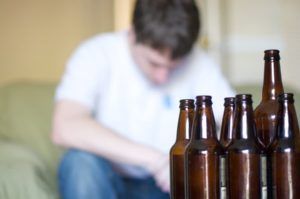 Too often we think of binge drinking as a habit of college students and young adults. Parties on the weekend, spring break shenanigans and inventive ways to ingest alcohol all point to the youth of America as big binge drinkers. However, several studies point to Baby Boomers’ use of alcohol, as well, including binge drinking behavior.
Too often we think of binge drinking as a habit of college students and young adults. Parties on the weekend, spring break shenanigans and inventive ways to ingest alcohol all point to the youth of America as big binge drinkers. However, several studies point to Baby Boomers’ use of alcohol, as well, including binge drinking behavior.
The effects of binge drinking are much more than a hangover the next morning.
Alcohol is treated as a poison in the body, so the euphoria we feel when drinking is actually our body telling us to knock off the drinking before we die. We are in control and we are aware that up to a certain point, we probably won’t die from drinking, so we have a few beers or cocktails with friends. Once those drinks begin to metabolize, our good judgment isn’t quite as reliable as it was before we began drinking. With binge consumption of alcohol, we take that to an extreme, consuming well over the amount needed for a buzz. Our bodies are then overloaded with alcohol, leading to loss of muscle control or even consciousness.
Over time, binge drinking can result in:
- Liver, nerve, or brain damage.
- Injuries due to driving drunk, falling or other accidents.
- Violence, assault or other criminal behaviors.
- Alcohol poisoning.
- Life-threatening heart conditions.
- Digestive conditions, diabetes and/or malnutrition.
- Death.
The other problems we face with binge drinking is that our bodies only process alcohol at a certain rate. Excess alcohol from binge drinking rapidly increases our blood alcohol concentration (BAC), leaving us even more intoxicated as we try to drive home. That obvious danger, including the risks of a DUI with ignition interlock requirement, or falling asleep while driving (a natural response to a high BAC, too) will not occur to a person who has been binge drinking.

 Can an Old WV DUI Count Against You?
Can an Old WV DUI Count Against You?